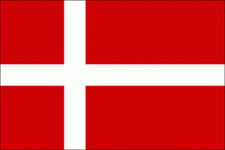
In Denmark, the main criterium used for measuring the integration of third-country nationals is their level of attachment to the labour market, with the securing of a full-time job seen as proof of their 'successful' integration. The criteria for obtaining permanent residence are also closely linked to having a full-time job. This can sometimes lead those with refugee status to accept positions or employment conditions they are not happy with, for fear that they will not otherwise be granted a permanent residence permit.
In this chapter, taken from the book Digesting Difference: Ethnographies of Sociocultural Incorporation in Migrant Europe, two Danish researchers examine the practice of offering newly arrived refugees in Denmark 'employment training' in the form of an unpaid internship, in order that they might be eligible to receive benefits. They take case studies of Afghan refugees in Denmark as their starting point. Such internship offers are often made shortly after arrival, when an individual has not yet had the time to learn the Danish language or research other employment options. Most internships examined by the researchers were found to be unlikely to lead to employment after completion, and limited in the opportunities they provide for language learning.
The text argues that the “thin” statistical representation of successful inclusion in the Danish labour market is a simplified, politicised representation of a much more complicated reality. It describes this representation as counterproductive, creating a new, 'precarious subclass' of underpaid people with refugee status who fear that if they object to their employment conditions in Denmark they will be returned to their countries of origin.
The chapter is based on 28 interviews conducted in 2017–2018 with refugees who arrived in Denmark from Afghanistan after 2009. The majority of respondents were men, ranging in age from 17 to 50, but mostly in their early 20s. There are approximately 19 000 Afghans currently living in Denmark. For several years they were the most represented nationality among the country's asylum seekers.
Details
- Authors
- Mikkel Rytter, Narges Ghandchi
- Geographic area
- Denmark
- Contributor type
- Academics and experts
- Original source
- Posted by
